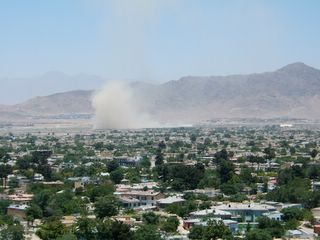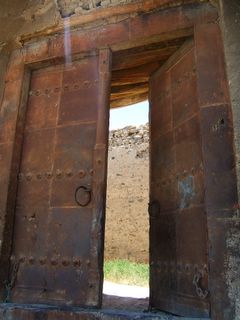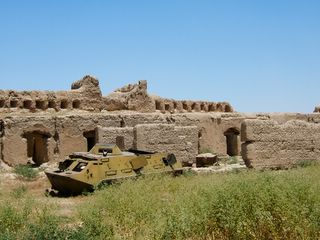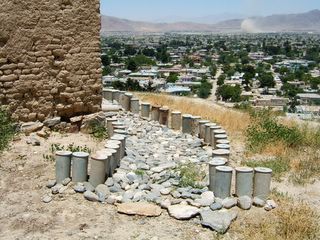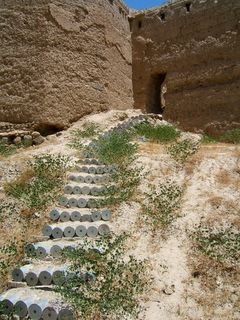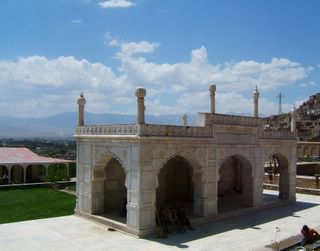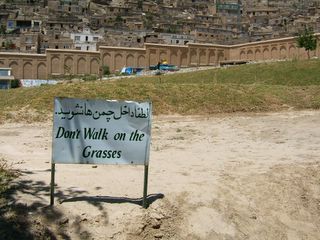J sat in the garden, drinking the Belgian’s scotch and cadging cigarettes from another inmate. “There’s a process to peacekeeping,” he said. “You go from conflict, to post-conflict, to local governance, and post-conflict is… a… process." He punctuated his words and the night air with his cigarette. "First, you put a group of eight soldiers on the street, armed, and send them out at random times, walking about. So people get used to seeing soldiers. Then, you reduce the group to four men – three with rifles, one with a handgun. Then one soldier. And then, eventually, you hand it over to the local cops.”
“And what happened here?” I asked.
He took a long draw on the cigarette. “Nothing. It just got handed over to the local cops. But they don’t have the ability to keep the peace yet. And that’s why there’s anarchy in Afghanistan. It’s a process, and no one followed it.”
I don’t know about peacekeeping theory, but J’s made sense, because I see the same problem with the reconstruction. In the name of empowering the Afghans and getting out ASAP, too much was handed over to the local government too soon, and they don’t have the capacity or capability to use the donor funding they control. As a result, the reconstruction isn’t happening, and this is bad. It’s bad for the Afghans, because they desperately need paved roads, drinkable water, a sewer system, and stable electricity, among other things. Businesses need these things too, and without them, the Afghan economy is going nowhere. It's bad for the Americans, because the Afghans are getting frustrated with the anarchy and lack of forward progress, and the Taliban is looking more and more like a reasonable alternative.
An example: This week’s Kabul Weekly published an article on the lack of road building happening in the capital. The roads are execrable – mainly rutted dirt and mud, which dries into a fine slurry that chokes the summer air. (Did I mention that Kabul has the highest percentage of fecal matter in its air of any city in the world? Open sewers, dirt roads... You get the picture.) Road building began years ago and then stopped. Why? The construction companies say they were never paid for their work by the municipality and had to quit before they finished.
I believe it. The organization I work with and many others are experiencing the same problem. The funding was approved by the donors for these organizations, but it stays locked away in a vault, waiting for a signature from a local government bureaucrat, helping no one.
In fairness, the US is one of the few donors that doesn't run projects through local governments, and some very nice highways are being built between Afghan cities. But the bulk of the funding that I’m involved with comes from other, more generous, donors, who route all approvals and funds through the Afghan ministries, which sit on the cash, obstructing the work.
And apparently the US isn't funding road improvements for Kabul. The US is spending a lot on aid on Afghanistan, but Afghanistan is a big country, and donor aid is scattered. I wonder at its effectiveness. The larger cities and towns need fixing, because if the townsfolk become disgruntled, they'll begin to provide aid and comfort to the insurgents. (I read it in a book).
Empowering the government is important and necessary. But that also, is a process, and a lengthy one, and the infrastructure needs to be rebuilt and repaired NOW, so we don't lose this insurgency. The mood among the populace is turning here, and I fear we’re losing the “hearts and minds” battle.

